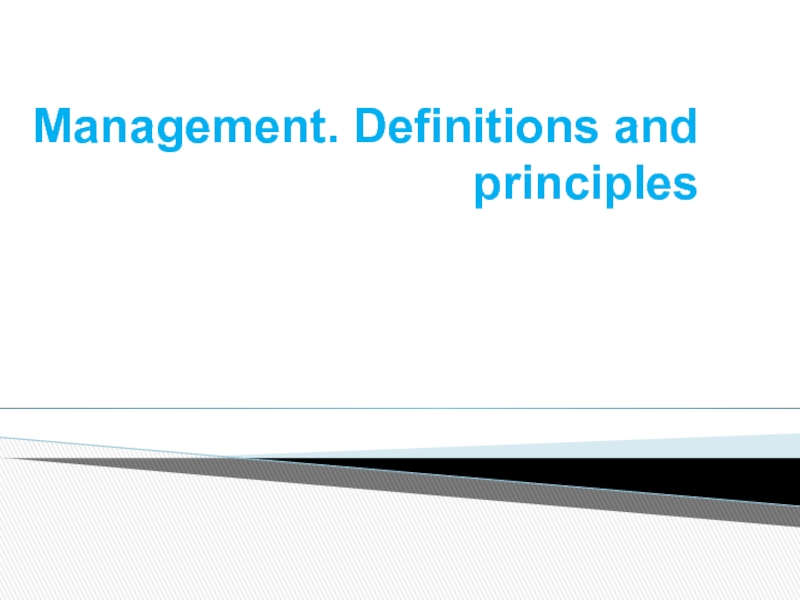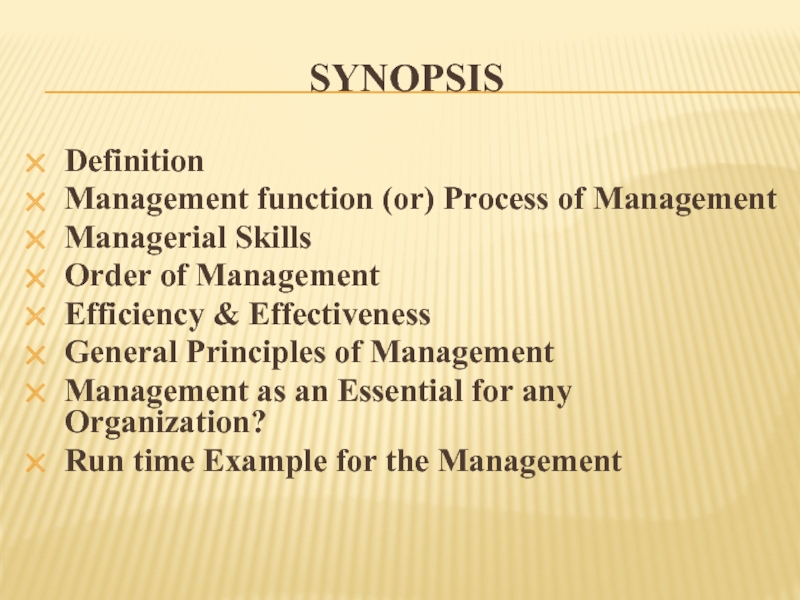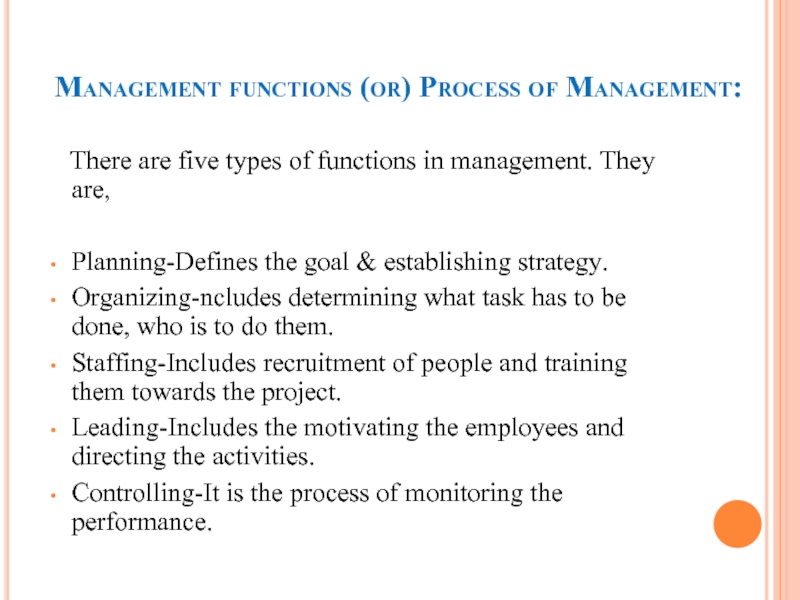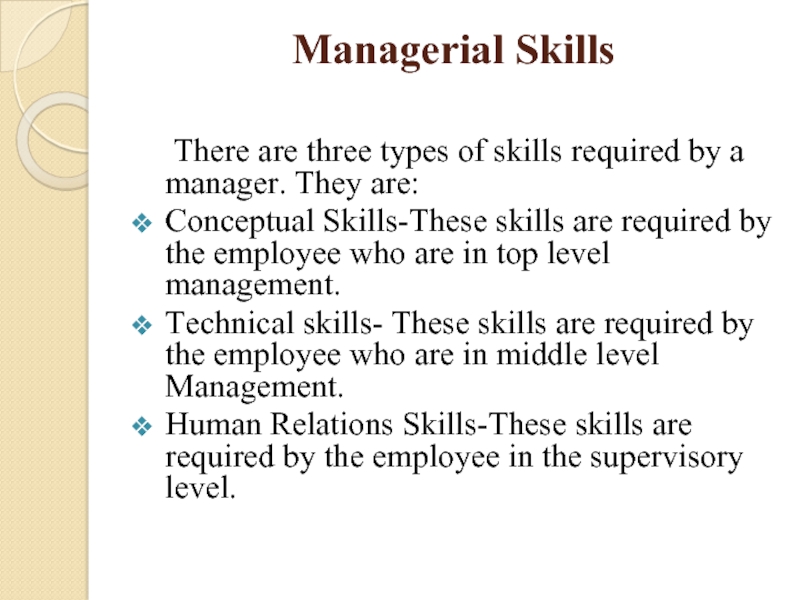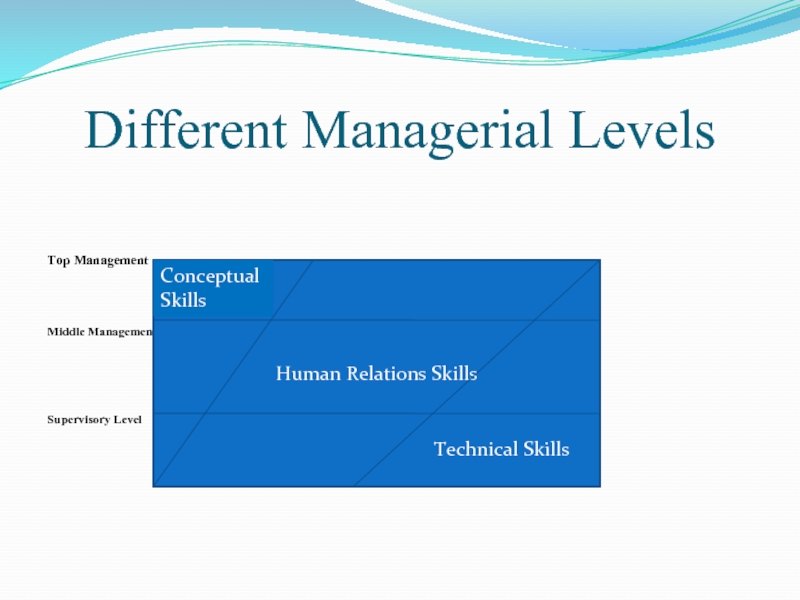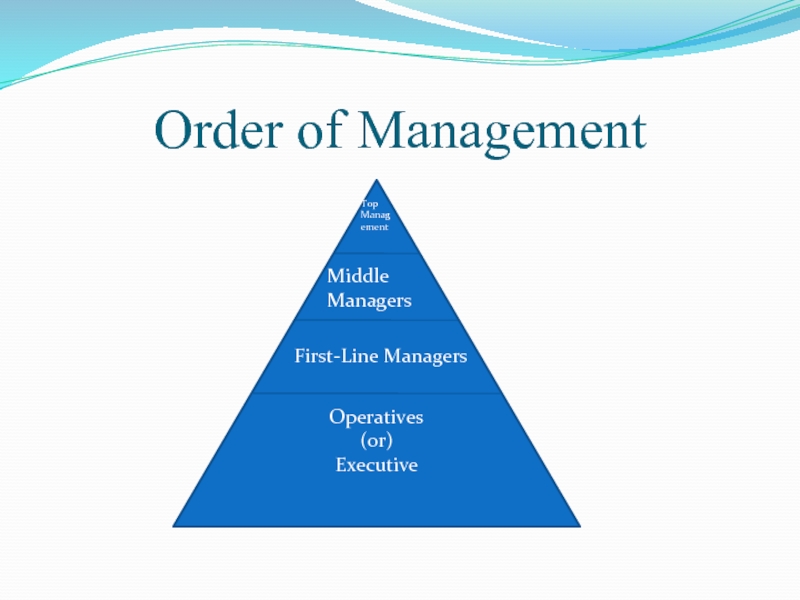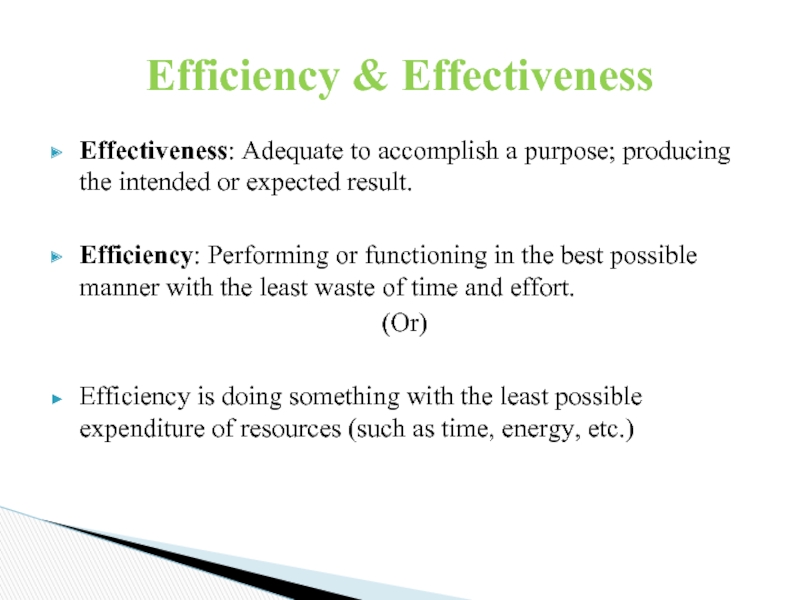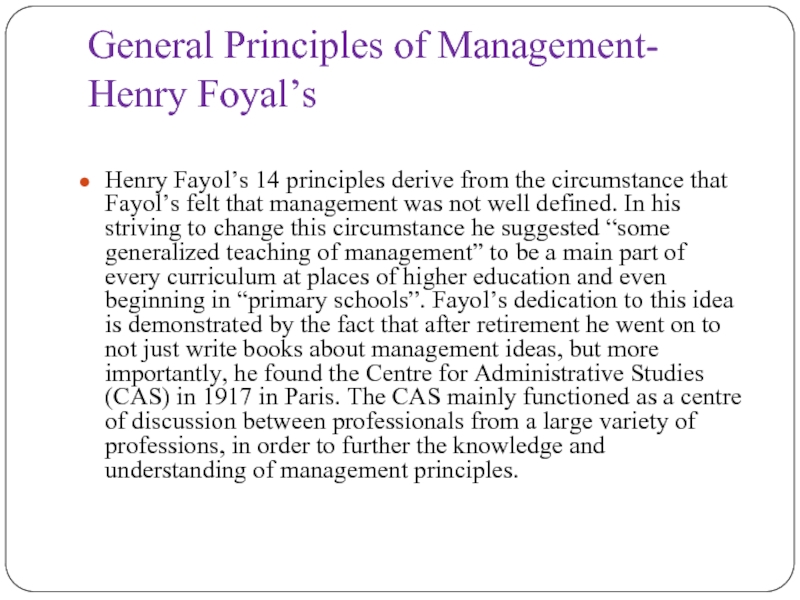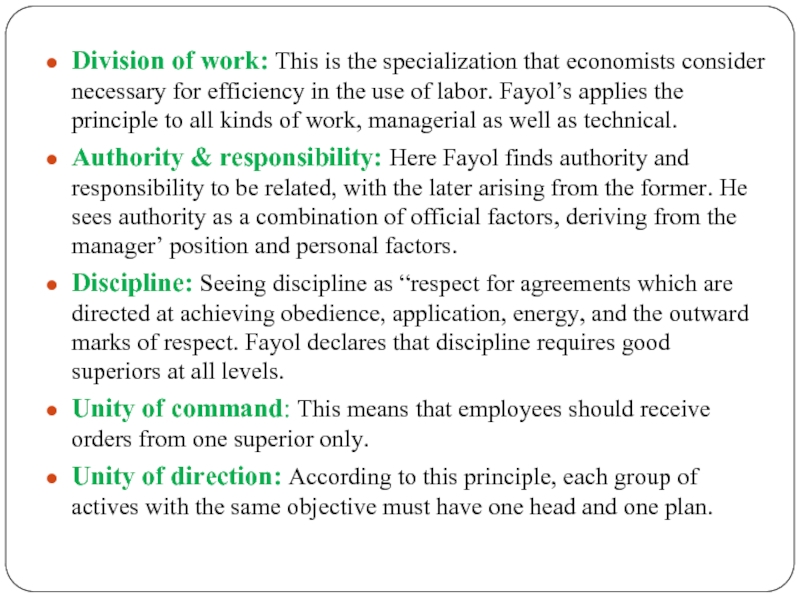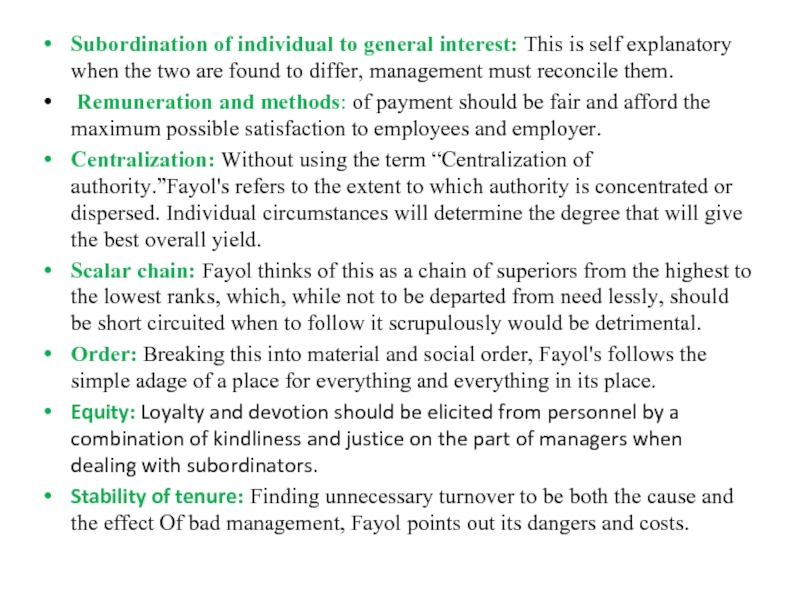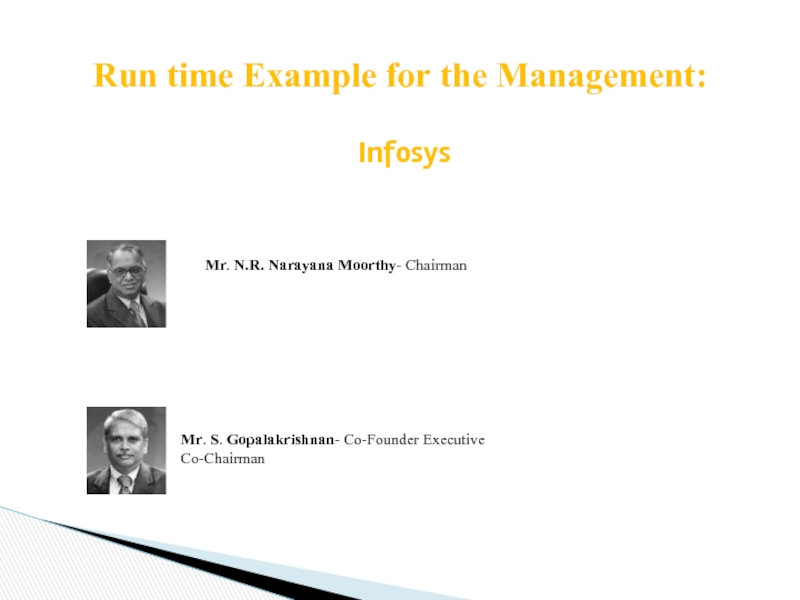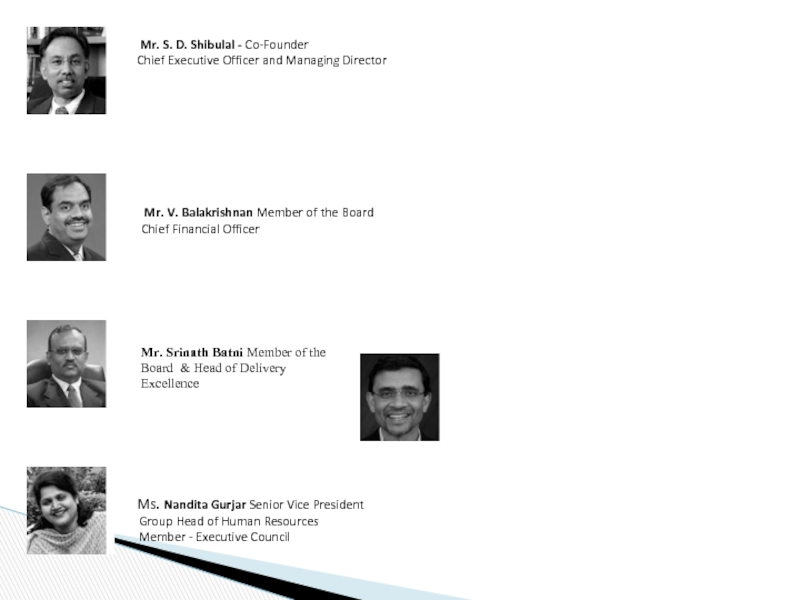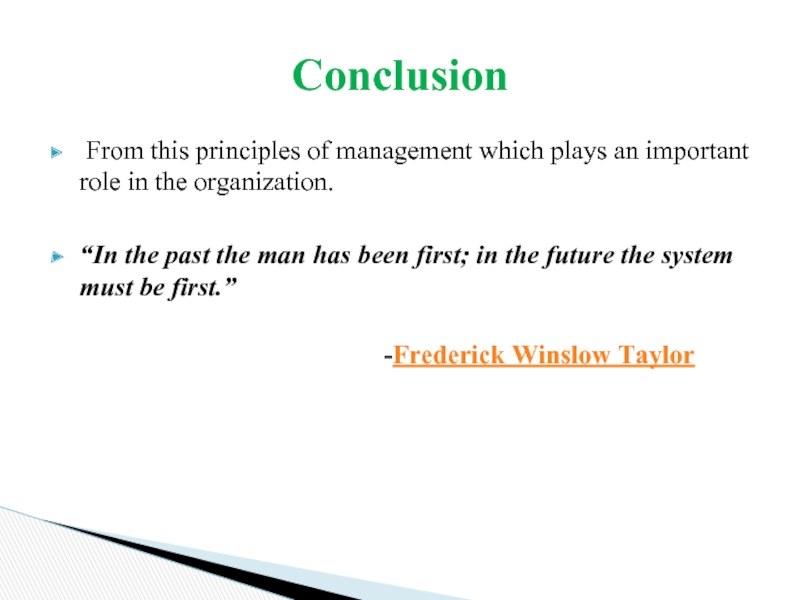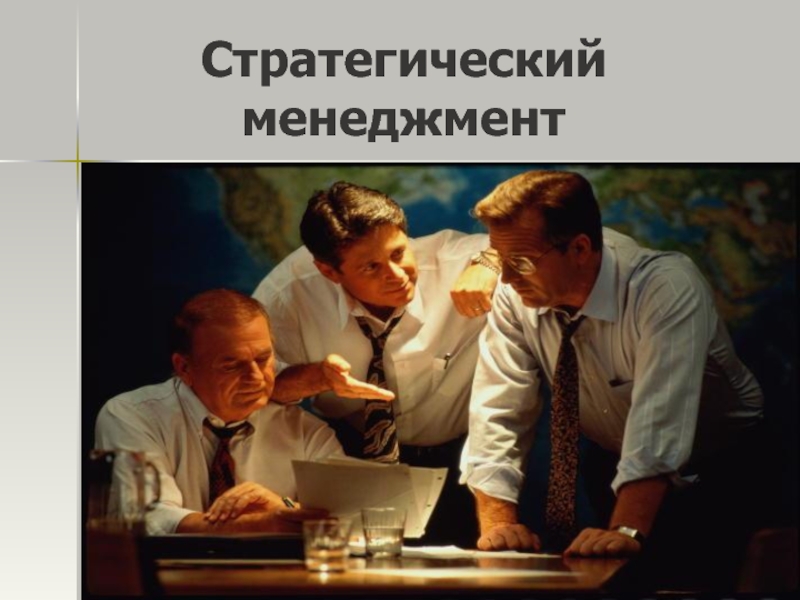- Главная
- Разное
- Дизайн
- Бизнес и предпринимательство
- Аналитика
- Образование
- Развлечения
- Красота и здоровье
- Финансы
- Государство
- Путешествия
- Спорт
- Недвижимость
- Армия
- Графика
- Культурология
- Еда и кулинария
- Лингвистика
- Английский язык
- Астрономия
- Алгебра
- Биология
- География
- Детские презентации
- Информатика
- История
- Литература
- Маркетинг
- Математика
- Медицина
- Менеджмент
- Музыка
- МХК
- Немецкий язык
- ОБЖ
- Обществознание
- Окружающий мир
- Педагогика
- Русский язык
- Технология
- Физика
- Философия
- Химия
- Шаблоны, картинки для презентаций
- Экология
- Экономика
- Юриспруденция
Management. Definitions and principles презентация
Содержание
- 1. Management. Definitions and principles
- 2. SYNOPSIS Definition Management function (or) Process of
- 3. “Management is the process of designing
- 4. Management functions (or) Process of Management:
- 5. Managerial Skills There are
- 6. Different Managerial Levels Top Management
- 7. Order of Management Operatives (or) Executive First-Line Managers Middle Managers Top Management
- 8. Effectiveness: Adequate to accomplish a purpose; producing
- 9. General Principles of Management- Henry Foyal’s Henry
- 10. Division of work: This is the specialization
- 11. Subordination of individual to general interest: This
- 12. Initiative: Initiative is conceived of as the
- 13. Infosys
- 15. From this principles of management which
- 16. Thank You
Слайд 2SYNOPSIS
Definition
Management function (or) Process of Management
Managerial Skills
Order of Management
Efficiency & Effectiveness
General
Management as an Essential for any Organization?
Run time Example for the Management
Слайд 3
“Management is the process of designing and
“Management is the process of getting things done, through & with people in organization”
Definition – Management:
Слайд 4Management functions (or) Process of Management:
There are five types
Planning-Defines the goal & establishing strategy.
Organizing-ncludes determining what task has to be done, who is to do them.
Staffing-Includes recruitment of people and training them towards the project.
Leading-Includes the motivating the employees and directing the activities.
Controlling-It is the process of monitoring the performance.
Слайд 5Managerial Skills
There are three types of skills required by
Conceptual Skills-These skills are required by the employee who are in top level management.
Technical skills- These skills are required by the employee who are in middle level Management.
Human Relations Skills-These skills are required by the employee in the supervisory level.
Слайд 6Different Managerial Levels
Top Management
Middle Management
Supervisory Level
Human Relations Skills
Conceptual Skills
Technical Skills
Слайд 8Effectiveness: Adequate to accomplish a purpose; producing the intended or expected
Efficiency: Performing or functioning in the best possible manner with the least waste of time and effort.
(Or)
Efficiency is doing something with the least possible expenditure of resources (such as time, energy, etc.)
Efficiency & Effectiveness
Слайд 9General Principles of Management- Henry Foyal’s
Henry Fayol’s 14 principles derive from
Слайд 10Division of work: This is the specialization that economists consider necessary
Authority & responsibility: Here Fayol finds authority and responsibility to be related, with the later arising from the former. He sees authority as a combination of official factors, deriving from the manager’ position and personal factors.
Discipline: Seeing discipline as “respect for agreements which are directed at achieving obedience, application, energy, and the outward marks of respect. Fayol declares that discipline requires good superiors at all levels.
Unity of command: This means that employees should receive orders from one superior only.
Unity of direction: According to this principle, each group of actives with the same objective must have one head and one plan.
Слайд 11Subordination of individual to general interest: This is self explanatory when
Remuneration and methods: of payment should be fair and afford the maximum possible satisfaction to employees and employer.
Centralization: Without using the term “Centralization of authority.”Fayol's refers to the extent to which authority is concentrated or dispersed. Individual circumstances will determine the degree that will give the best overall yield.
Scalar chain: Fayol thinks of this as a chain of superiors from the highest to the lowest ranks, which, while not to be departed from need lessly, should be short circuited when to follow it scrupulously would be detrimental.
Order: Breaking this into material and social order, Fayol's follows the simple adage of a place for everything and everything in its place.
Equity: Loyalty and devotion should be elicited from personnel by a combination of kindliness and justice on the part of managers when dealing with subordinators.
Stability of tenure: Finding unnecessary turnover to be both the cause and the effect Of bad management, Fayol points out its dangers and costs.
Слайд 12Initiative: Initiative is conceived of as the thinking out and execution
Esprit de corps: This is principle that “in union there is strength” as well as an extension of the principle of unity of command, emphasizing the need for teamwork and the importance of communication in obtaining it.
Management as an Essential for any Organization?
Managers are charged with the responsibility of taking actions that will enable individuals to make their best contributions to group objectives. Management thus applies to small and large organizations, to profit and not-for profit enterprises, to manufacturing as well as service industries.
Слайд 13Infosys
Run time Example for the Management:
Mr. S. Gopalakrishnan- Co-Founder Executive Co-Chairman
Слайд 14
Mr. S. D. Shibulal - Co-Founder Chief Executive Officer and Managing Director
Mr. V. Balakrishnan Member of the Board
Chief Financial Officer
Mr. Srinath Batni Member of the Board & Head of Delivery Excellence
Ms. Nandita Gurjar Senior Vice President
Group Head of Human Resources
Member - Executive Council
Mr. Basab Pradhan Senior Vice President
Head of Global Sales, Marketing and Alliances
Member, Executive Council
Слайд 15 From this principles of management which plays an important role
“In the past the man has been first; in the future the system must be first.”
-Frederick Winslow Taylor
Conclusion
